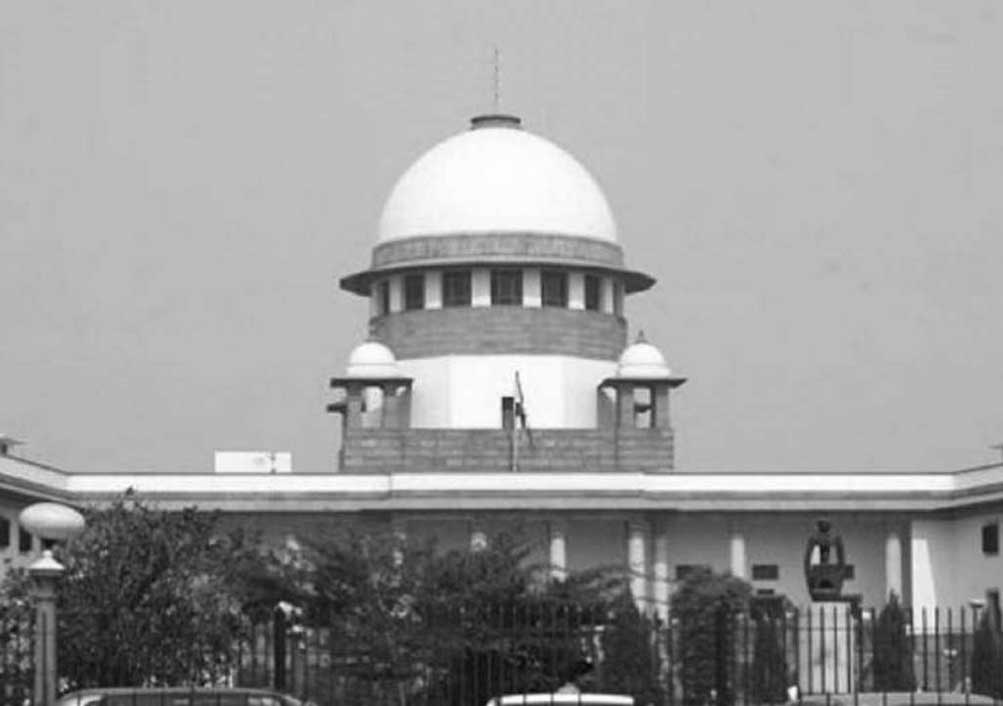Apex Court upholds acquittal order in cheque bounce case where debt/liability, in discharge of which the cheques were issued, did not reflect in complainant’s balance-sheet
Justices Aniruddha Bose & Sanjay Kumar [09-04-2024]

Read Order: M/S RAJCO STEEL ENTERPRISES v. KAVITA SARAFF AND ANOTHER [SC- PETITION FOR SPECIAL LEAVE TO APPEAL (CRIMINAL) NO.5583 OF 2022]
LE Correspondent
New Delhi, April 12, 2024: In a cheque bounce case where the complainant/petitioner had failed to produce any document showing any loan transaction pertaining to the cheques in question, the Supreme Court has dismissed a petition challenging a Calcutta High Court order whereby the accused was acquitted of the charges.
The common petitioner in these four petitions for special leave to appeal was a partnership firm dealing in iron and steel products. The petitioner had assailed a common judgment of the Calcutta High Court by which the petitioner’s appeal against acquittal of the first respondent in respect of offences under Section 138 of the Negotiable Instrument Act, 1881 (1881 Act) had been dismissed.
The petitioner, through its partner, Ramesh Kumar Gupta, had lodged four complaint cases under the aforesaid provision, after four cheques alleged to have been issued by the accused/respondent no.1, were dishonoured on the ground of insufficiency of funds. The petitioner claimed that these cheques were issued between 07.11.2008 and 24.11.2008, drawn on the Axis Bank Limited, Burra Bazar in Kolkata.
Four independent complaint cases were lodged in the Court of the Metropolitan Magistrate, Kolkata by the petitioner. The petitioner contended before the Trial Court that it had granted financial assistance to the accused/respondent no.1 and the said cheques were issued by the accused/respondent no.1 in discharge of her liability towards the petitioner. The petitioner/complainant had issued a statutory demand notice which was duly served upon the accused/respondent no. 1 on but the accused neither complied with the requisition as contained therein, nor gave any reply thereto. To further substantiate its case, the petitioner/complainant also relied upon the testimony of its partner, Ramesh Kumar Gupta.
The accused/respondent no.1 had taken the defence that the petitioner had not provided any financial assistance, but money was advanced to the accused/respondent no.1 for undertaking stock market related transactions through her account.
The defence case, in essence, was that the cheques, the dishonour of which was the subject of this proceeding, were neither issued nor handed over to the complainant, but these were illegally procured by the complainant/petitioner from the custody of the investigating agency i.e., CBI and were subsequently presented for encashment intentionally.
The First Appellate Court acquitted the accused/respondent no.1. It found that the complainant/petitioner had failed to produce any document showing any loan transaction. The petitioner approached the Top Court after the appeal against the judgment of acquittal was also dismissed.
The Division Bench comprising Justice Aniruddha Bose & Justice Sanjay Kumar observed that both the Courts had examined the evidence threadbare and in the opinion of these two fora, the evidence went against the complainant/petitioner. On the question as to whether the sum involved in the cheques was advanced in discharge of a legally enforceable debt or not, the petitioner had failed to show if any sum was advanced towards financial assistance.
The High Court found that the debt/liability, in discharge of which, according to the petitioner, the cheques were issued, did not reflect in the petitioner's balance-sheet. The other partners of the firm did not depose as prosecution witnesses to establish that the cheque-amounts were advanced to the accused as financial assistance.
As per the Bench, the respondent no.1/accused had put up a plausible defence as regards the reason for which the petitioner's funds had come to her account. “Both the appellate fora, on going through the evidence did not find existence of any enforceable debt or other liability. This strikes at the root of the petitioners case”, the Bench said.
Thus, dismissing the petitions, the Bench held that no point of law is involved in this set of cases that would warrant interference.
Sign up for our weekly newsletter to stay up to date on our product, events featured blog, special offer and all of the exciting things that take place here at Legitquest.




Add a Comment